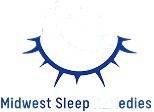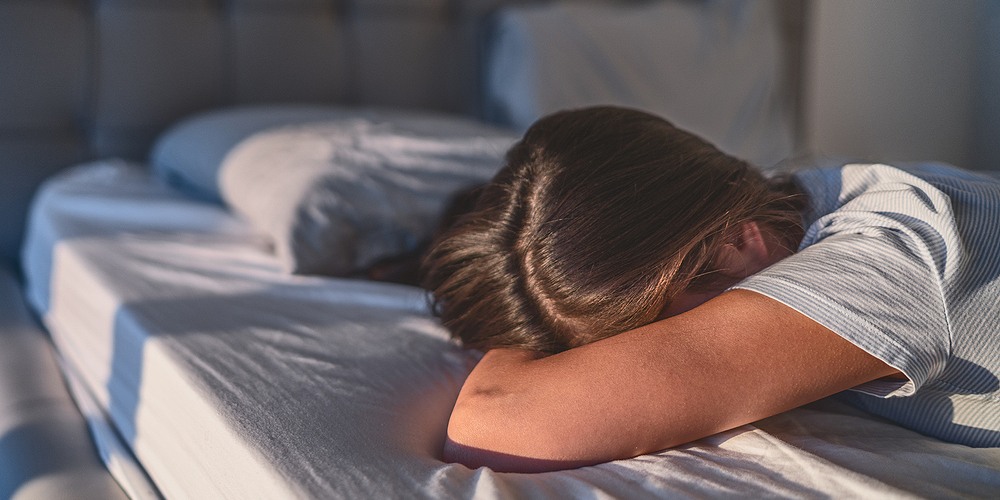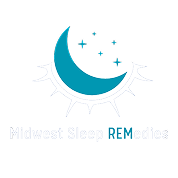Waking up exhausted, moody, or mentally drained even after eight hours of sleep can feel frustrating. If this sounds familiar, you might be dealing with more than just a bad night’s sleep. Sleep apnea is a condition that silently disturbs your rest and may deeply affect your emotional well-being. In this blog, we’ll explore how sleep apnea and mental health are linked, especially how it can lead to anxiety and depression.
You’ll learn how your brain responds to poor sleep, what signs to look out for, and how proper treatment can help you feel fresh and healthy again.
Key Takeaways:
- Sleep apnea disrupts deep sleep and oxygen flow, contributing to both anxiety and depression.
- Constant sleep interruptions trigger stress hormones, leading to emotional instability and anxiety.
- Poor sleep caused by sleep apnea affects brain chemicals like serotonin, increasing the risk of depression.
- Symptoms of sleep apnea, anxiety, and depression often overlap, making diagnosis difficult without a sleep study.
- Effective treatment like CPAP or oral appliance therapy can improve both mental health and emotional well-being.
What is Sleep Apnea, and Why Is It More Than Just Snoring?
Sleep apnea is a condition in which your breathing repeatedly pauses and starts again during sleep. These frequent interruptions in breathing last from a few seconds to a minute, and they can happen many times a night.
The condition blocks your airflow and lowers your oxygen levels. As a result, your brain keeps waking your body just enough to breathe again which ruins your sleep cycles.
This leads to symptoms like
- Loud snoring
- Gasping or choking during sleep
- Morning headaches
- Daytime sleepiness
- Trouble focusing
- Mood swings
Most people think sleep apnea only causes physical fatigue. However, that’s not the whole story. Lack of quality sleep affects your brain just as much as your body. Therefore, it’s not surprising that many people with this condition also experience anxiety or depression.
Can Sleep Apnea Cause Anxiety?
Yes, it can. There is a strong link between sleep apnea and anxiety. But how? Let’s break it down.
When your breathing stops during sleep, your body sees it as a threat. Therefore, it triggers the stress response and releases hormones like cortisol and adrenaline. Over time, this “fight-or-flight” mode stays activated, even during the day.
This leads to constant restlessness, nervousness, and even panic attacks. In fact, many people start to feel anxious without knowing why, when the real problem lies in their sleep.
Additionally, the brain doesn’t get enough oxygen, which increases emotional instability. You may notice:
- Trouble staying calm in stressful situations
- A racing mind
- Shallow breathing during the day
- Irritability or muscle tension
Furthermore, poor sleep affects decision-making and emotional control. You might overreact to small issues or feel uneasy for no reason. These signs are often labeled as ‘generalized anxiety,’ but the root cause could be something else, possibly sleep apnea.
Can Sleep Apnea Cause Depression? A Look at Brain Chemistry and Sleep Cycles
Sleep apnea and depression are deeply connected. And it goes beyond just feeling tired.
Your brain needs deep sleep to regulate chemicals like serotonin and dopamine. These are the “feel good” messengers that help you stay balanced and happy. However, sleep apnea disrupts the deep sleep stages, especially REM sleep, which is crucial for emotional processing.
As a result, your brain can’t reset properly. Over time, this causes:
- Lack of interest in things you used to enjoy
- Difficulty getting out of bed
- Constant sadness or hopelessness
- Feeling mentally slow or detached
Oxygen levels drop during apnea episodes. This affects brain regions that handle mood, especially the limbic system. Hence, many people with untreated sleep apnea feel depressed, even if their life is going well.
Studies show that people with sleep apnea are over twice as likely to have depression. Yet, the cause is often missed because the symptoms overlap.
Looking for a Comfortable Way to Manage Sleep Apnea?
Discover custom oral appliances designed to treat sleep apnea comfortably and effectively.
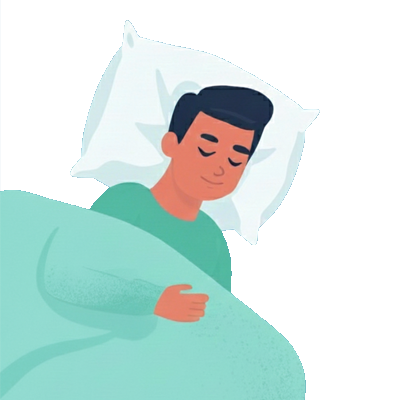
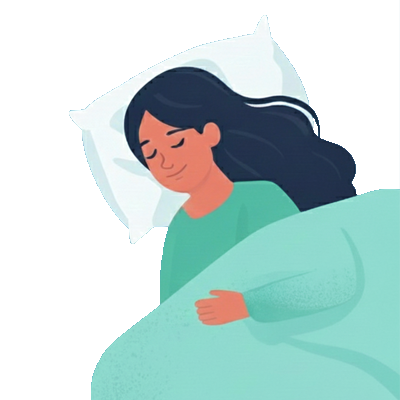


Overlapping Symptoms: When It’s Hard to Tell What’s Really Going On
Many symptoms of sleep apnea and depression look the same. That’s why the true cause can be overlooked for years.
Common overlapping signs include:
- Brain fog
- Daytime tiredness
- Trouble concentrating
- Mood swings
- Reduced motivation
- Irritability
Moreover, mental health medications don’t always help if sleep is the actual problem. In fact, they might even make daytime sleepiness worse.
Let’s say you’ve tried therapy or antidepressants, but your symptoms keep coming back. That’s a red flag. You might need a sleep test, not a new prescription.
Furthermore, the dangers of untreated sleep apnea include not just physical health problems but ongoing mental distress. Without proper diagnosis, you may continue to feel stuck or frustrated.
How Treatment Improves Mental Health
Treating sleep apnea doesn’t just help you sleep better; it can also make a real difference in how you feel mentally and emotionally.
The most common treatment is CPAP therapy, which uses gentle air pressure to keep your airways open while you sleep. However, CPAP isn’t the right fit for everyone. If you’ve struggled with using a CPAP machine or find it uncomfortable, you might want to consider using oral appliance therapy. These custom-fitted devices are designed to keep your airway open by repositioning your jaw or tongue during sleep, and they’re often more comfortable and easier to use for many patients.
In addition to CPAP and oral device therapy, other helpful changes may include losing weight, avoiding alcohol near bedtime, and sleeping on your side.
When sleep apnea is treated, people often report:
- Better focus and clarity
- Reduced anxiety and irritability
- Improved mood and emotional balance
- More energy throughout the day
If you’re exploring alternatives to CPAP or want to learn more about oral appliance therapy, Midwest Sleep Remedies offers trusted, patient-focused solutions that can help you breathe, sleep, and feel better.
How to Tell If Your Mental Health Struggles May Be Sleep-Related
You might be wondering, “How do I know if sleep is the issue?” While only a sleep study can confirm it, here are a few clues that your anxiety or depression might be tied to sleep apnea:
- Do you snore loudly or gasp in your sleep?
- Do you wake up with a dry mouth or headache?
- Are your mental health symptoms worse in the morning?
- Has medication helped only a little or not at all?
- Do you often fall asleep while watching TV or sitting still?
If your partner says you stop breathing during sleep, that’s a major indicator.
You can try keeping a sleep journal for a week. Track how you feel at bedtime, during the night, and in the morning. Share it with your doctor. It might reveal a pattern worth exploring.
Conclusion
In conclusion, the connection between sleep apnea and mental health is too important to overlook. Untreated sleep apnea can silently contribute to both anxiety and depression, affecting your daily life in ways you may not realize. By disrupting sleep cycles, reducing oxygen to the brain, and triggering stress responses, sleep apnea can deeply impact how you feel emotionally and mentally. If you’ve been managing symptoms of depression or anxiety without much relief, your sleep could be a missing piece of the puzzle. Getting the right treatment can not only restore your energy but also your emotional balance and overall quality of life.
Have Questions About Disturbed Sleep?
Don’t wait for the symptoms to get worse. Talk to your doctor, get tested, and take the steps toward better sleep and a healthier life.






